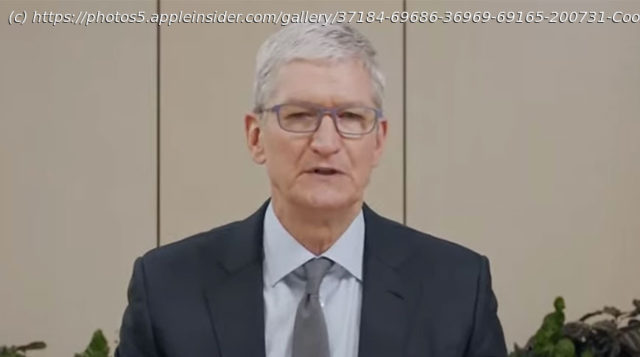Apple has become the subject of many different antitrust investigations, looking into the iPhone maker’s activities relating to the App Store, Apple Pay, and other areas. Here’s the backstory on all of the recent and currently ongoing antitrust actions affecting Apple at the moment.
Apple has become the subject of many different antitrust investigations, looking into the iPhone maker’s activities relating to the App Store, Apple Pay, and other areas. Here’s the backstory on all of the recent and currently ongoing antitrust actions affecting Apple at the moment. Accusations of antitrust behavior and the initiation of investigations into such matters can be a pain for many major tech companies, and as a big player in the industry, Apple has received its fair share of complaints. With potentially billions in fines and major changes in the way the company has to operate on the line if found to be in the wrong, Apple has to take the complaints extremely seriously. While Apple’s main antitrust accusations relate to the App Store, it also has to deal with complaints in other areas of its empire. Generally speaking, antitrust relates to how big companies operate within a market, and if there are issues regarding competition. Antitrust laws are put in place to prevent any abuses of power by a company being big enough to effectively operate as a monopoly, and to encourage more competition between firms. For example, antitrust laws help keep companies that seem to be a monopoly honest by operating fairly. While it would be easy for a big company to cut out others in an industry in a variety of ways, the laws instead seek to maintain the opportunity for smaller rivals to exist, and to potentially grow to a size where it could compete more effectively against larger incumbent companies. Firms attempting to use their size and market power to control the entire market at the expense of rivals are usually probed by regulators, to determine if activities are fair and non-predatory. Companies found to be breaking antitrust laws face high penalties, giving them a considerable disincentive to continue their behavior. To consumers, competition in the market is good as it can help create new services and improve existing offerings, as well as potentially driving prices down. Some laws also prevent conspiracies to fix prices between firms, artificially keeping prices high to extract more money from consumers, or artificially low to drive another rival out of the market. Antitrust is about making the gorilla of a market play nicely with others. Obviously, as Apple is a very large company and operates multiple storefronts and services, it has become subject to accusations that it is the metaphorical gorilla, and one that’s allegedly no saint. The biggest area of Apple’s empire that has become the target of antitrust suits is the App Store, the main port of call for apps that aim to be installed on iPhones, iPads, and other Apple hardware. Any app that wants to be usable on an iPhone has to have a listing in the App Store, and so has to abide by the App Store rules. As part of the rules for existence in the ecosystem, a 30% cut of both app sales and in-app purchases is taken by Apple while the remainder is provided to the developer or publisher. While there are some exceptions to the rules, such as for subscriptions and specific types of app, the vast majority of apps have to deal with this charge. While Google implements a similar fee structure for the Google Play Store on Android, it differs in that it is possible for an Android user to install apps independently from the Google Play Store, such as via a different storefront or side-loading the app. It is not possible for developers to undertake similar actions to bypass the store to avoid the charge on iOS. Furthermore, companies are also forced into using Apple’s payment system for mobile purchases from the app. Though it is possible for an app to be used to facilitate a subscription or purchase made outside of the app, such as through a browser, and externally from Apple’s payment systems, purchases with limited exceptions must pass through Apple’s payment service. One of the longest-running antitrust complaints that is still under investigation by regulators is one from Spotify. The major music streaming service objects to the 30% fee, which Spotify founder and CEO Daniel Ek characterized as a tax, as it isn’t being implemented in a fair manner. Spotify’s main argument is that Apple Music exists and can be subscribed to, but as Apple Music isn’t visibly subjected to the same App Store fee as Spotify, it can be offered to consumers at a comparatively lower cost to Apple than Spotify. While Spotify can be subscribed to directly via a browser away from the App Store, Spotify argues that the charge forces the firm to operate in an uneven playing-field, if it wants to offer subscriptions via the iOS app. Basically, if Spotify charges consumers at the same cost as Apple Music, it will earn a lower rate of revenue due to handing the 30% fee to Apple. If it increased prices so it earned the same amount of revenue as Apple would from Apple Music, but effectively handed the 30% charge over to consumers, this would make Spotify less attractive to a price-conscious audience. In an official anti-competition complaint against Apple filed with the European Commission in March 2019, Ek complained « Apple is both the owner of the iOS platform and the App Store – and a competitor to services like Spotify. In theory, this is fine. But in Apple’s case, they continue to give themselves an unfair advantage at every turn. » Spotify also believes that Apple Music has a further advantage due to Apple failing to provide enough access to core technologies for third-party firms, such as Siri, HomePod, and Apple Watch. Controlling the platforms means Apple is « artificially limiting innovation and constraining user choice by refusing to allow Spotify and other firms access to technology and information via the App Store. » In May, the European Commission confirmed it was going to examine the complaint via a formal investigation into how the App Store policies allegedly hindered Apple Music’s competitors. The Commission warned the investigation could take years to complete. In June 2019, the Federal Trade Commission and the Department of Justice announced plans to enhance their monitoring of major tech firms, starting with Amazon and Google, for potential antitrust issues.






